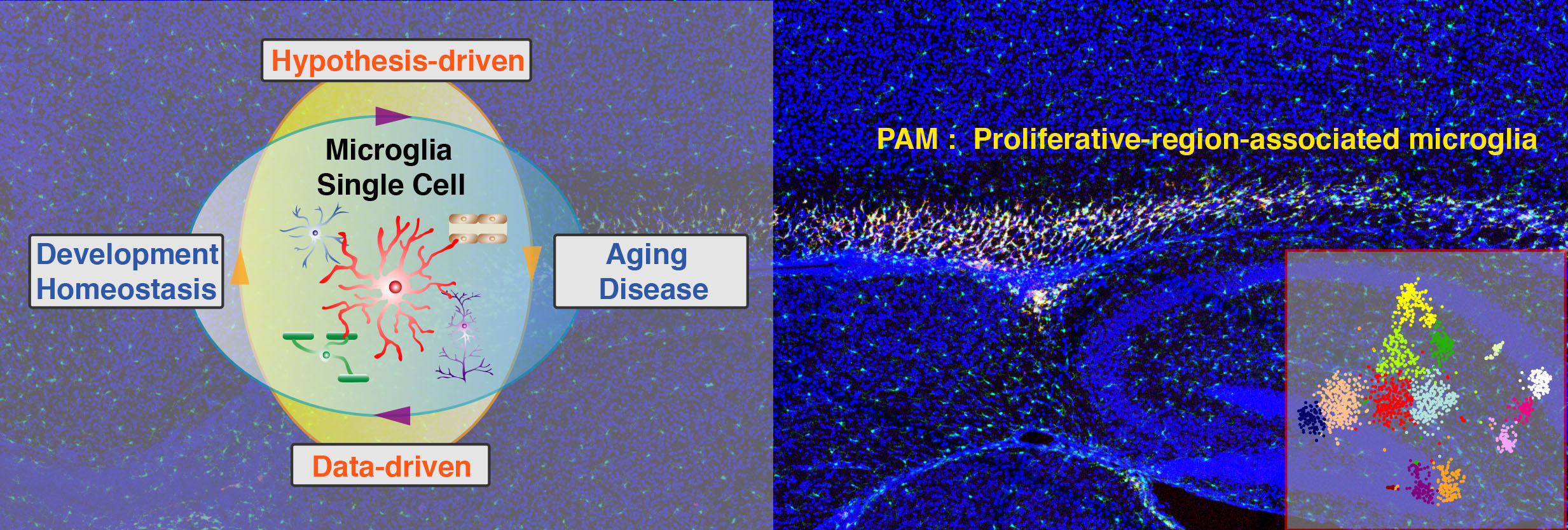
Microglial Biology in Development, Aging and Disease at the Single Cell Level
Description
Microglia are brain macrophages that are implicated in almost all neurological diseases. Despite the importance of these multitasking cells, little is known about their molecular heterogeneity under physiological conditions and especially during development when they perform many critical non-immune functions. To address this question, I took advantage of a cutting-edge single-cell RNA-seq platform to deeply sequence ~100,000 individual microglia and related myeloid cells (>1 million reads/cell) geographically throughout relevant organs and brain regions, longitudinally across animals’ entire lifespan. This unbiased approach pointed to surprisingly little heterogeneity of adult microglia, and uncovered an early-postnatal microglial subset that we named proliferative-region associated microglia (PAM). Interestingly, PAM share a common transcriptomic signature and functional features with recently reported degenerative disease-associated microglia (DAM), which opens a novel avenue to investigate microglial contribution to neurodegeneration from a developmental perspective.
In this seminar, I will talk about this large single-cell genomics study that probed developmental heterogeneity of microglia, leading to the discovery of PAM. I will also briefly talk about two other research directions, where I will leverage the dataset covering the early embryonic stage to study microglia fate specification and the late time points to understand microglial function in the aged brain. Overall, my research program aims to address fundamental questions regarding microglial development as well as their functions in aging and disease at the single cell level.

